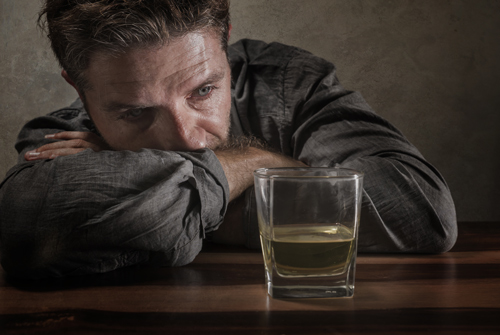Because so many people drink alcohol socially, it may be hard to notice when someone has started to develop a drinking problem that needs further help. Drinking problem signs can be hard to notice in yourself and in those you care about.
Most times someone with an alcohol problem doesn’t realize they have a problem. You can help those around you by being familiar with the warning signs that they may be missing. Here are some warning signs to keep in mind.
Excessive Amounts of Alcohol
Most people with a drinking problem think that they just drink socially as a way to engage with those around them. For most people, social or moderate drinking means not having more than one or two drinks per day. Even this kind of drinking can cause problems if it alters the way they perform in their daily lives.
If someone has five or more drinks in one day, that is considered binge drinking. Most people with an alcohol problem greatly surpass that number eventually. Because it happens gradually they may not notice or think it is a problem. As the initial effects of drinking start to diminish over time, they will gradually increase the amount they drink each day until they are up to a dozen drinks or more every day.
Loss of Control
Another important sign of an alcohol problem is a loss of control while drinking. People that struggle with an alcohol problem usually tell themselves or others that they will start drinking less. Even though their intentions are good, they are unable to keep that promise.
Once they reach a certain amount of alcohol, they cannot stop drinking. They stop thinking about the consequences and promises they have made. Once they start drinking, they need to keep drinking until they are drunk.
Persistent Use of Alcohol
Even after the person becomes aware of their problem, they still drink alcohol frequently and cannot stop. Things like getting a DUI or relationship problems are not enough to get them to make changes to their behavior.
They may be so caught up in thinking they don’t have a problem that they continue in the downward spiral. This loss of perspective and control can be devastating. When problems arise in their lives, they don’t want to face them because that means healing, so they turn to alcohol which makes the problem worse.
Alcohol-Related Activities
While it is normal to engage in alcohol-related activities occasionally, alcoholics will spend a lot of time in them. It may become so pervasive that it prevents them from participating in other areas of their life that used to be important to them. They may start neglecting their family, job, hobbies, and financial obligations.
Usually, when confronted about this behavior, they will get defensive and say that no one understands their problems. They may also say that they are using that time to unwind so they can tackle their problems later, but the later time never comes.
Withdrawal Symptoms
Someone with an alcohol problem will also develop withdrawal symptoms if they stop alcohol use. They may experience vomiting, insomnia, rapid heartbeat, nausea, headaches, sweating, or tremors. These are the easier to notice symptoms. Milder symptoms that may be harder to notice are fatigue, depression, irritability, anxiety, or difficulty concentrating. In extreme cases, they may also have hallucinations, convulsions, or blackouts. If this is the case, they need to seek medical help immediately.
Increased Tolerance
When consumed regularly over time, a person will develop a tolerance for alcohol. The same amount of alcohol will not bring the desired effects anymore, so they will need to increase how much they are drinking to feel the same way.
Because this tolerance increases gradually, it can be hard for someone to notice when it is happening. A lot of people with an alcohol problem don’t realize they have a problem because they may not feel drunk when they are drinking. Even if they don’t feel drunk, they can do a lot of damage to their body.
Next Steps
If you or someone you care about has an alcohol problem, then you should seek help. There are many different treatment options available to help people heal from their addiction and get back to enjoying their life. Understanding these options is the first step to getting the proper help. Recovery is possible, and you shouldn’t have to do it alone.

No responses yet